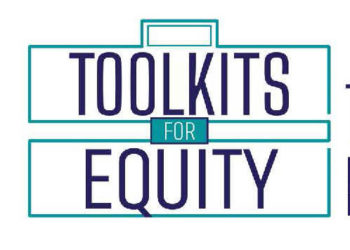It’s widely recognized that the research process is riddled with inequities, as seen in anything from clinical trials that focus primarily (or exclusively!) on white male subjects, to racially-biased grant funding, bias in peer review (based on gender or geography, among other factors), and more. There’s also plenty of evidence of inequities within academic institutions, including in college admissions (dealt a blow in the recent Supreme Court ruling against affirmative action here in the US), and in the hiring and promotion process. But, to date, very little has been written about inequities right at the very start of the grant lifecycle — the pre-award stage — which includes announcing opportunities, and preparing, submitting and reviewing applications.
In an ideal world, the pre-award process would be transparent, easily understood, and equitable. There would be equal access for all researchers to information about funding opportunities, along with tailored support to meet a range of needs, including those of underrepresented academics. There would be plenty of time and resources allocated for applications, and appropriate training for those in decision-making positions. You probably won’t be surprised to learn that, sadly, things look very different in the real world. I and my MoreBrains colleagues recently completed a six-month project on issues of equality, diversity, inclusion, and transparency in the process of applying for research funding, working with the Elizabeth Blackwell Institute for Health Research (EBI) at Bristol University, and supported by the Wellcome Trust’s Institutional Strategic Support Fund (ISSF) award. The researchers and research managers we engaged with along the way told us that they routinely encounter both official and unofficial gatekeeping points, biases, and other obstacles, such as avoidable time pressures, poorly understood requirements, and inequities across disciplines, career stages, and institutional resource levels. What’s more, the Matthew Effect is very much in evidence, with a minority of (typically well-established) researchers who have already received grants more likely to be put forward for — and awarded — even more money, while their (typically less senior) colleagues struggle to get funding.

Recognizing these issues is one thing; addressing them is another. So a big driver of this work was the desire to come up with practical recommendations that can be implemented at the organizational level (in funding organizations and/or institutions) by researchers, research managers, and others. With that in mind, we first developed a model of pre-award processes, based on existing analyses. The draft was reviewed and revised via a virtual workshop involving a diverse range of staff and researchers at the University of Bristol to create a detailed workflow, which was revised and extended in a virtual workshop with 20 members of the Association of Research Managers and Administrators (ARMA), who collectively represented a range of perspectives from across the UK and/or had EDI expertise and experience. We then convened an in-person symposium in Bristol, based on the updated workflow, to explore the findings to date and discuss potential interventions. After the symposium, the project team collated all the challenges and potential solutions, synthesizing them into 11 recommendations — some specifically for institutions, some for funders, and some for both groups. They’re published in full in this report (which also includes the final workflow, as well as more information about the project), and summarized below:
Recommendations for institutions
- Equip academics to address exclusionary behaviors consistently, and head on: moving beyond awareness of bias to providing active training on antiracism and allyship
- Redefine research leadership and re-formalize research support: this includes training in how to provide feedback and conduct peer review in a constructive way, as well as mentoring, coaching, and sponsorship of early career researchers
- Ensure that the burden of change is not a tax on diversity: solutions must not impose an additional burden on already minoritized and underrepresented researchers
- Stop incentivizing burnout: research leaders must be role models for not working excessively, and research organizations must support a healthy work culture
- Provide better institutional access to information about research activities and expertise: develop readily accessible tools to map out research expertise and activities, to avoid inadvertent exclusion by information gatekeeping
- Be open and honest about what the research community wants: collectively define priorities for EDI, stipulate (and enforce) EDI requirements at every stage of a project
Recommendations for funders
- Consider the impact of how funding opportunities are designed, structured, and shared: for example, by ensuring that all stages of call design are transparent and by scheduling calls and reviews inclusively
Recommendations for institutions and funders
- Avoid training being yet another burden: training must be prioritized and accounted for in researcher workloads, and resources should be provided in a range of media and formats
- Diversify our idea of research careers, and break down cultural silos: recognize a wider range of contributions to and roles within research projects, and a more diverse range of research careers
- Explore and experiment fairly and transparently: make time for management, and for developing and evaluating new approaches to managing workloads
- Leverage review and evaluation: use peer review as a tool for negotiating research culture change, and establish EDI as a central component of review and assessment criteria
We hope these concrete recommendations will help move us from talk to action — and we’re excited to already be taking a step in that direction. After learning about this work, the Declaration on Research Assessment (DORA) approached us about helping to take it forward, so we are convening a short series of virtual workshops with their funder discussion group, with the goal of fostering a shared understanding and establishing which recommendations are most feasible, including identifying real-world challenges and barriers. I hope to be able to update you on the outcomes of those meetings later this year.
As one of the project participants said: “If we use the strength of diversity among researchers we can only improve the quality and impact of our research” — a sentiment we liked so much, we made it the title of our report!
Discussion
1 Thought on "Inequities in Grant Funding Start Early: How Can We Address Them?"
In today’s DORA funder discussion group call, Gearoid Maguire of Wellcome talked about their Equitable Funding Practice Library, which I’m sharing here as it’s a great resource: https://airtable.com/apptThWVU6KRwIZkn/shrHfDhgpnofXHXoz/tbl7DXsy8C8ZPdPIP



